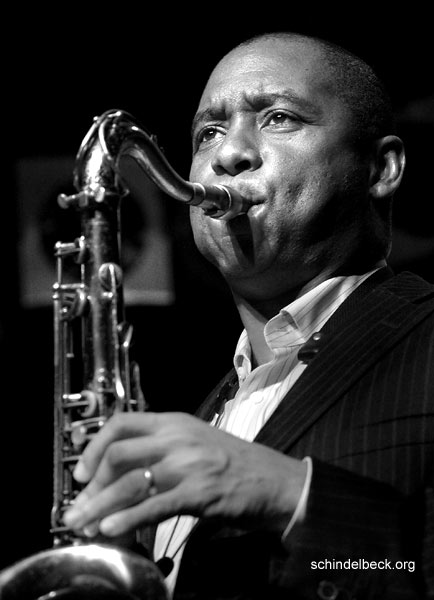North Carolina Symphony recording features Branford Marsalis
 RALEIGH, N.C. (AP) — The North Carolina Symphony has released its first commercial recording, but it's a jazz saxophonist, three-time Grammy winner Branford Marsalis, who gets top billing on the classical release. "American Spectrum," a four-work compact disc, features Marsalis the soloist on one performance and his quartet on another. And Marsalis has no airs when it comes to classical music, which he says requires more attention to detail than jazz.
RALEIGH, N.C. (AP) — The North Carolina Symphony has released its first commercial recording, but it's a jazz saxophonist, three-time Grammy winner Branford Marsalis, who gets top billing on the classical release. "American Spectrum," a four-work compact disc, features Marsalis the soloist on one performance and his quartet on another. And Marsalis has no airs when it comes to classical music, which he says requires more attention to detail than jazz.
"All the music we grow up with in our country, you can have certain little technical quirks or deficiencies, and you can just pass it off as part of your personal style," Classical music "is a different aesthetic completely."
Marsalis performs as a soloist on John Williams' "Escapades" and his quartet performs on Ned Rorem's "Lions (a Dream)." Because the jazz band leader had performed with the North Carolina Symphony in the past, symphony music director Grant Llewellyn knew what to expect. "As jazz musicians go, Branford ... not only reads music fluently, he is fascinated by the whole orchestral, symphonic scene," Llewellyn said.
The quartet musicians may not be as versed in classical music, he said, but are "such naturally smart, instinctive musicians that between us all, we could all end up on the same page." Marsalis, who moved with his wife and three children from New Rochelle, N.Y., to Durham in 2002, is a member of the symphony's Board of Trustees. Marsalis has come to relish the "adagio" in classical music, the slower movement in a piece. "I think because musicians are so obsessed with technical perfection, they spend a lot more time working on the fast bits," Marsalis said. "And the slow bits to me are where all the meat and bones are ... That's the part that affect people the most."
Besides two pieces with Marsalis, the symphony also plays "Sunset Strip" by Michael Daugherty and a 27-minute version of "Friandises" by Christopher Rouse. Llewellyn said the symphony easily could have recorded more typical classical fare such as Bach, but sought out more difficult works. That helped attract BIS Records in Stockholm, which is releasing the CD internationally. "I think it's very important for an orchestra of this caliber to be seen and heard on CD and not playing just anything," Llewellyn said. "In jazz, you might just have a chord sheet and everybody needs to know the changes and there is tremendous scope for improvisation," but for the CD, "we were dealing with a much more exacting process."
Symphony president David Chambliss Worters said he doesn't expect the CD, like many classical CDs, to be a moneymaker. But he said it will provide exposure for the symphony and "for changing people's perception about the quality of your organization." Two gifts covered the $170,000 costs of the CD. Worters said BIS was so pleased with results it is moving up the release of a second CD featuring piano concertos by Russian composers that should be out by year's end.

Comments